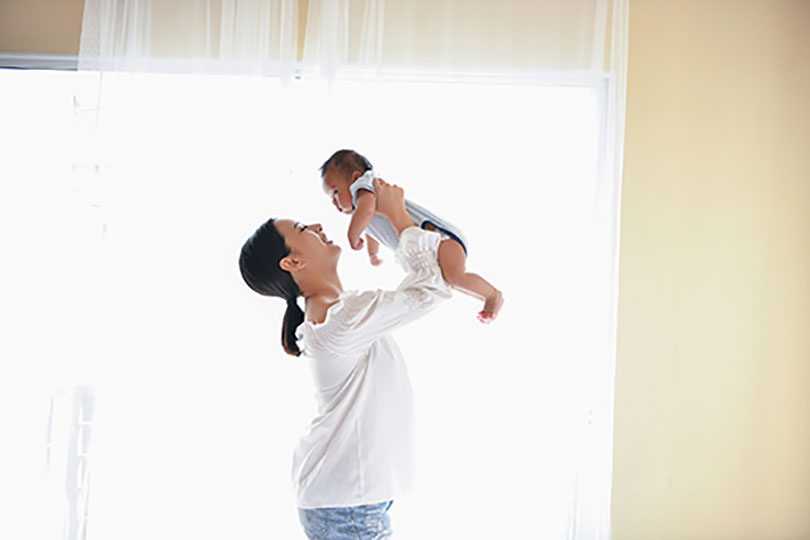New parents are lifting, holding, breastfeeding, bending, carrying, twisting and quite possibly running around like a chicken with their head cut off 99 percent of the time. We know new parents are sleep deprived, but let’s not forget to acknowledge how physically demanding the job is as well.
It’s important for new parents to take care of themselves and know their limits to avoid straining and injuring themselves. First of all, make sure you’re getting the right amount of postpartum rest before engaging in physical activity. Consult with your obstetrician to determine when it’s safe to return to usual activity levels. Once cleared by your doctor, get back to exercising to regain your strength and equip your body for the physical demands of parenting.
“If you’re experiencing ongoing pain after delivery, tell your obstetrician and see if you should seek out a physical therapist specializing in women’s health,” said Margaret Blagg, Board Certified Women’s Health Physical Therapist. “The sooner you seek treatment, if needed, the better the outcome.”
Back pain caused by poor body mechanics can affect moms, dads or any caretaker in general. Let’s cover the proper form to use when performing these daily tasks to prevent the strain on your back.
Dos and don’ts when handling your baby:
- Breastfeeding:
Breastfeeding mothers spend a lot of time feeding their newborns. Don’t settle for a feeding position at the expense of your back. Don’t bend down/hunch over to your baby to feed them. Sit upright and bring them up to you by stacking pillows in your lap. This posture is better for your back and does not compromise your comfort or your baby’s comfort.
- Lifting and Carrying:
Many parents lift their babies upwards of 50 times a day. Yikes. Without using proper form, your back will pay the price. Don’t bend at your waist and lean down to pick up your child. Instead, bend at your knees and use your legs to lift. Avoid using straight arms to lift your baby. Bring them close to your chest before lifting. This technique relies on your leg strength and doesn’t overload your arm or back muscles.
The closer you hold your baby to the center of your body, the better for your spine. This is why the common baby on hip pose is often discouraged and why “wearing” your baby is comfortable for many parents. There are several great carrier style options. Finding the right one for you or switching between a couple can help prevent muscle fatigue and keep you comfortable, similar to how switching shoes throughout a long day helps with aching. The goal of a carrier is to evenly distribute your baby’s weight across your body and allow you to hold them close to your body. Make sure your carrier lets you and your baby maintain an upright position and keeps your baby’s face exposed and visible to you for supervision. Back carriers are typically not recommended until your baby reaches 12 months.
Car seats are safe and wonderful inventions, but can we talk about how awkward and cumbersome they can be? Twisting motions are not your back’s friend, and that’s exactly how most parents maneuver their children and car seats. Kneel in front of your child when adjusting and buckling them into their car seat. Leaning in and twisting from standing outside of the car strains your back. Don’t overload yourself by putting the baby in the car seat outside of the car and carrying them both at the same time. Install the car seat first and then place your baby in it.
“If you do experience back pain, prolonged periods of sitting or lying in bed can make the pain worse,” said Blagg. “Try heat or ice, then get moving.”




